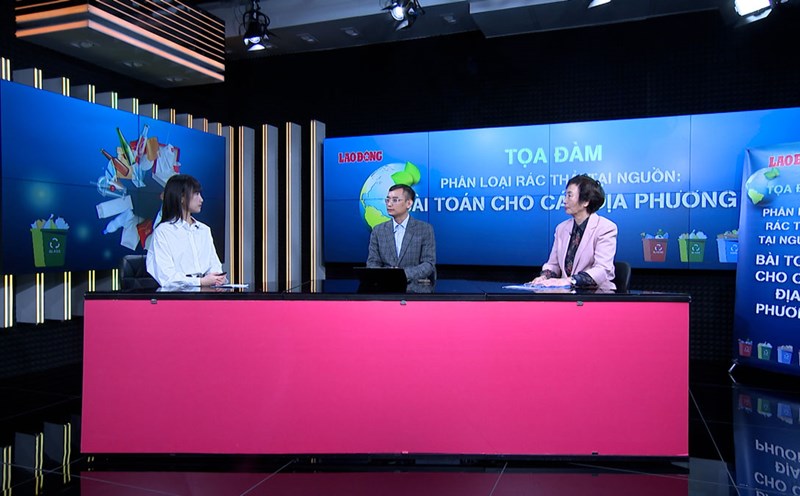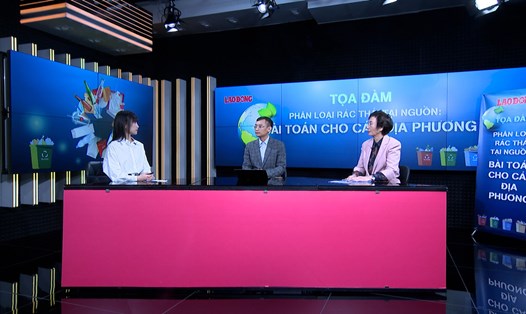Decree 45/2022 of the Government regulating administrative sanctions for environmental violations clearly states that "a fine of VND 500,000 to VND 1 million will be imposed on households and individuals who do not classify domestic solid waste according to regulations". This Decree takes effect from today, January 1, 2025.
According to statistics, up to now, the total amount of domestic solid waste (SWM) generated nationwide is about 67,110 tons/day. If we only take a modest cost of collecting, transporting and treating 1 (one) ton of SWM which is 50 USD, then on average the whole country spends about 3.35 million USD per day to collect, transport and treat all generated SWM (equivalent to about 1,222.75 million USD/year). This is not a small number for a developing country like Vietnam.
According to records, many people still do not clearly understand how to classify waste and how to pay according to the amount of waste. Along with that, collection units still do not have specific instructions; are not equipped with tools to collect classified waste; are not popularized about the frequency and location of collecting classified waste;...
Mr. Nguyen Thi - Lecturer at Hanoi University of Natural Resources and Environment said that regarding classification, most people have not done it, still putting different types of waste together. Regarding collection, mainly rudimentary means are used, uncovered, causing leakage and foul odor. Waste transportation is also quite far from the center, the main method of waste treatment is landfill. This causes both pollution and waste resources.
"Currently, domestic solid waste is not classified, and the waste is still mixed together. Of which, more than 60% is organic waste, more than 20% is recyclable inorganic waste, and the rest is unprocessable waste. We are currently still treating waste by mixing it together. If not collected properly, it will cause environmental pollution and affect the aesthetic appearance," said Mr. Thi.
Although there is a Decree on administrative sanctions for environmental violations, Mr. Thi said that handling violations will only be effective when we have developed infrastructure, raised public awareness, and have a monitoring system such as public cameras, people's monitoring organizations, associations, wards, etc.
According to Associate Professor Dr. Bui Thi An - Director of the Institute of Natural Resources, Environment and Community Development, waste collection and treatment infrastructure in big cities has not kept up with the speed of urbanization and population growth. Facilities such as public waste sorting bins are limited and not synchronized - this is also the main reason why source sorting has not achieved the expected results.
Regarding environmental protection propaganda, according to Mr. Ho Trung Kien - Deputy Director of the Department of Environmental Pollution Control, Ministry of Natural Resources and Environment, this is a task that needs to be done regularly and long-term, it can take up to decades to change people's behavior and awareness. Propaganda and education work needs to be done regularly and extensively.
"The Ministry of Natural Resources and Environment also has many actions related to propaganda work such as creating cartoons to guide on classification work, we go to provinces that do well to film. The Ministry also builds a toolkit to identify waste such as recyclables, food waste... so that people can easily recognize it," said Mr. Kien.










